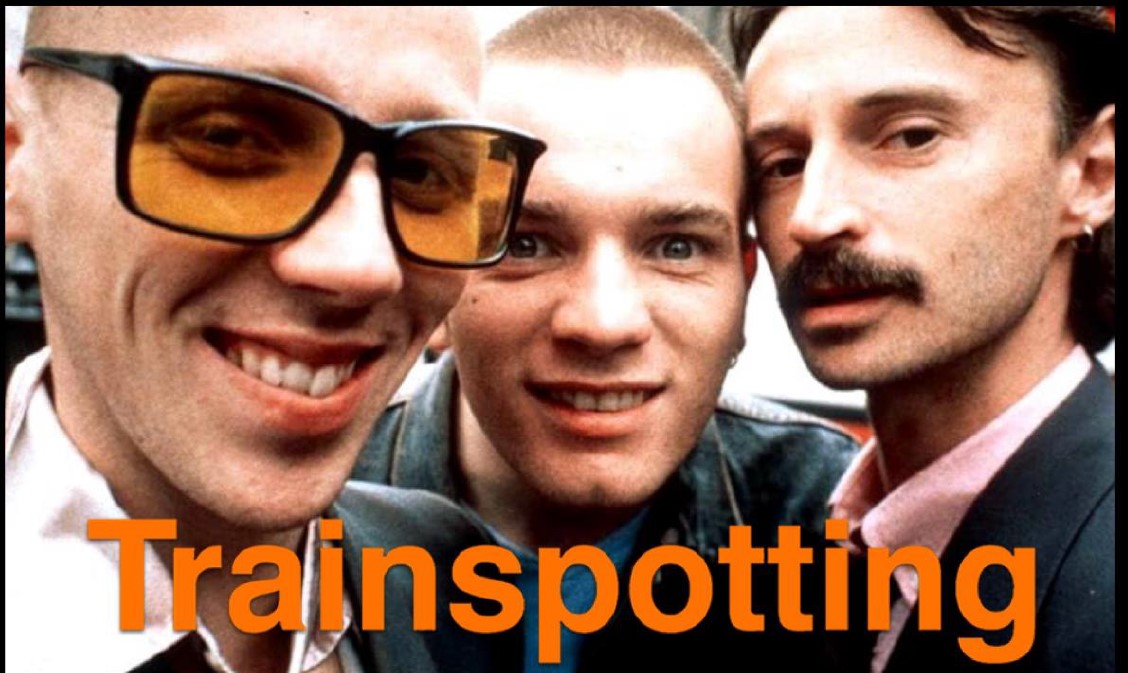
THE SOCIETY OF ANALYTICAL PSYCHOLOGY
In Partnership with
EVERYMAN
IN THERAPY
Adapted from Irvine Welsh’s 1993 novel, Dany Boyle’s “Trainspotting” is a vigorous, gritty evocation of an economically deprived, de-industrialised, Aids-riddled Edinburgh drug landscape seen through the lens of a kind of social -realism pessimism of mass unemployment and decline, exacerbated by Margaret Thatcher’s ravages of industry in the 1980s.
The film explores the darker shadows of addiction and captures the energy of what it is to be transgressive. Holding the tension of a volatile cocktail of opposites, with the intensities, highs and lows of drug use supercharged with sulphurous humour, brutal recklessness, violence, a colourful vocabulary and a heightened expression of 1990s pop culture, it takes a pragmatic view of addiction and shows some of the most disturbing images ever put to screen. The film’s fierce joy and colour palate was influenced by what Danny Boyle called “the in-between land, part reality, part fantasy’.
The film portrays how the anti -hero, Mark Renton, together with his fellow practitioners Sick Boy, Spud, Tommy and Begbie, is struggling with his particularly radical individuation journey of grappling with getting off heroin, somehow making sense of his life and falling hard for teenager Diane. The characters are carelessly amoral and express personal myths of screwing up, causing pain, and taking outrageous steps to obtain drugs. Boyle convincingly observes the shared camaraderie, humour, desperation, understanding and shared need among users, whose substance abuse sets them apart form ordinary civilians. There is always the secret agenda, that the drug of choice is always more important than engaging with the every day liveliness of friendships, family, jobs, play and sex. As Renton says about the drug experience: “Take the best orgasm you ever had, multiply it by a thousand and you’re still nowhere near it” .
It is also a socio-cultural comment on the materialistic panacea that Society offers the compliant, and remarkably modern as a forerunner of the toxic hard-man mythos. Begbie’s brutality embodies nihilism and psychosis, whilst Sick Boy looks to a lost cool Scottish machismo as expressed by Sean Connery that is no longer relevant in the 1990s.
The issues raised are as relevant to today’s society as they were when the film was made. These will be discussed following the film in a dialogue between Rupert Tower (Jungian analyst) and Hessel Willemsen (Jungian analyst), and chaired by Adam Reynolds (Head of Brand Partnerships, Everyman). Do join us!
Venue: Everyman Broadgate, 1 Finsbury Avenue, London EC2M 2PF 3HP
Tickets £18.40
Book directly: Everyman Cinema